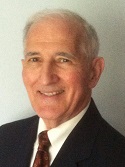Leadership and the Decision-Making Process

by Bruce Keller
I am a long-time student and disciple of finding the best decision-making process, and I continue to analyze how people make choices and what makes for good decisions. We call upon in every decision our “Evaluators”, i.e., the beliefs, convictions, presumptions, judgments and values that we use to select the best option or course of action from two or more alternatives. The “Evaluators” we use and how authentically we use them determine whether the final choice we make either meets or does not meet our intentions.
Since great leaders must make good decisions, the “Evaluators” must support beliefs that make leaders great. Research indicates that if leaders are to be great, their beliefs, convictions, presumptions, judgments and values must align with certain principles.
For example, leaders must believe and act to help others, do the right thing, bring out the best in others, listen to others with an open mind, and put the team’s success first. These are a few examples. Other correlative principles precipitate from these.
The question is, “How do leaders ensure that they are embracing and acting on these principles?”
I’m reminded of something I learned about motivation. “People do things because they know how to and because they want to.” The “how to” comes from skills and the “want to” comes from personal strengths.
In the skills department I would offer five main capabilities, being able to:
- Meaningfully engage others,
- Objectively listen to others,
- Influence other without intimidation,
- Organize others productively, and
- Compliment others such that they feel their worth.
I offer that five major personal strengths great leaders need are:
- Considerateness, especially of team members
- Forgiveness, (not pardoning or excusing but rather wiping clean the slate of any negativity)
- Compassion to bring together rather than apart
- Gratitude to give thanks, and
- Generosity, to be able to rise above the petty and stay with what is important.
Great leaders I have known in my 53 years in the business world as a Fortune 500 business executive, a management consultant, an executive coach and an entrepreneur have demonstrated these skills and personal strengths as building blocks of their fine reputations.
About Bruce Keller
 Bruce Keller devoted his successful career to helping people make better decisions. He was with the Kemner-Tregoe consulting firm and also held during his earlier career key positions in motivational management and human resources. Bruce and I were classmates at Georgetown, and then he earned his graduate degree at Columbia University.
Bruce Keller devoted his successful career to helping people make better decisions. He was with the Kemner-Tregoe consulting firm and also held during his earlier career key positions in motivational management and human resources. Bruce and I were classmates at Georgetown, and then he earned his graduate degree at Columbia University.
